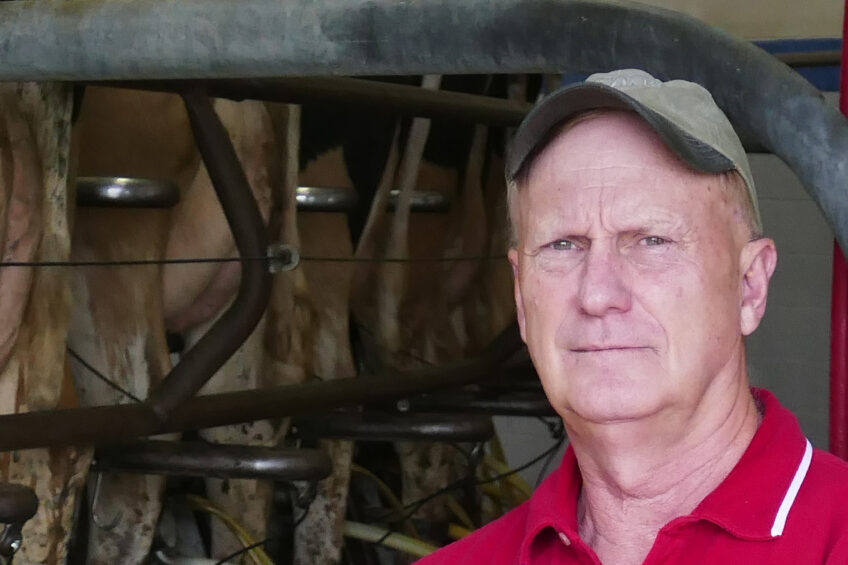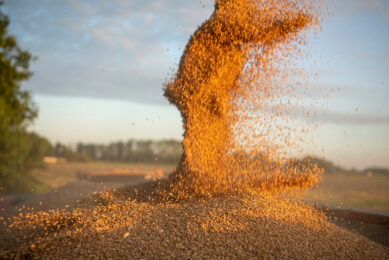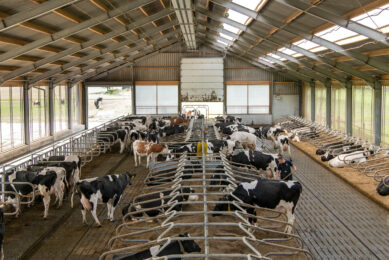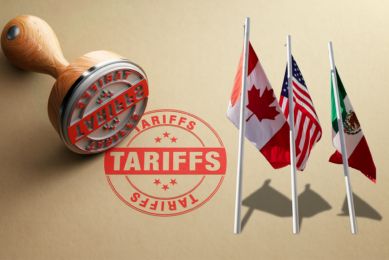Large, but a family business nonetheless

With 37,000 dairy cows and 3,000 breeding sows, Fair Oaks Farms is an enormous company. However, it perceives itself as a family business. And that will remain the case.
Fair Oaks Farms, in the little village of Fair Oaks, Indiana, is home to around 37,000 dairy cows. These are spread over 11 locations in a connected area of 12,800 hectares of private property. All manure, about 400 cubic metres a day, is processed by 6 bio gas installations. The largest part of the gas is used as fuel for the trucks.
“We have 42 of our own trucks on the road,” says Gary Corbett, Fair Oaks Farms’ 68-year old CEO. “We also have 3,000 breeding sows. We deliver around 90,000 piglets a year and we process 15% of the milk ourselves every year. We have a milk powder factory and a joint venture with Coca Cola for the liquid products. Fair Oaks employs 425 people.
The most striking thing about your company is the Fair Oaks visitors’ centre. Did you build it to silence your critics?
“We prefer to call it our education centre. It is established as a non-profit activity. 1% of Americans are farmers and the other 99% are mostly unfamiliar with agriculture. We think it is important that people know where their food comes from and how it is produced. We welcome 50,000 students a year and an additional 25,000 young people through clubs or groups that camp in the surroundings. We annually draw 500,000 visitors. We do not have to do this because there is resistance to large cattle companies. Although this protest does exist, obtaining permits has never been an issue. However, there are idiots who would love to set our cows free.”
Profile
Name: Gary Corbett (68)
Company: Fair Oak Farms
Job: Chief Executive Officer
Who owns the company?
“9 families own this company – 8 or which are second or third generation Dutch. They have known each other for years. They started in California, moved to New Mexico and started Fair Oaks in 1998. These families and their children are closely associated with the company and work in its various branches. Because of their commitment, the future is ensured.”
Why did they move from New Mexico?
An insurance company that speculated on the expansion of the Chicago airport, put up 6,000 connected hectares for sale. In this part of the country, the milk price is higher than in New Mexico and access to a large market is better. After this purchase, they kept buying land from other farmers.”
Are there any plans to expand or is Fair Oaks big enough?
“We have a permit for another unit. This will be a company with an 80-unit rotary milking parlour, the same as our last expansion in 2013. We will have more than 40,000 cows with enough land. Next year, we will build for 1 million broilers.
Why poultry?
“For the same reason we started with pigs. We will not expand, but we want a profitable branch to show the public what a modern poultry farm looks like. As with the pigs, this will be a partnership with third parties. At this moment, Land O’ Lakes builds a unit at our visitors’ centre to educate the public concerning vegetable production.”
So Fair Oaks also works with third parties?
“Absolutely. The milk production on Fair Oaks is well-organised, but the company as a whole is a complex organisation. In addition to this location, we have other dairy companies, among which 6 former Vreba-Hoff companies we took over when Vreba-Hoff went bankrupt. In total, we have about 100,000 cows. In addition to that, we market the milk of 125 other dairy farmers. These are exclusively large companies with 3,000 to 5,000 cows. We do not buy stock, the calves go to our own calf fattening farms in Michigan and Texas. We fatten about 50,000 bulls every year. We also have partnerships with companies we deliver our piglets to.”
Why grow bigger and bigger?
You can earn a living with 300 cows, but with 3,000, you earn more. Also, you can work more efficiently because of the economies of scale. On the one hand, you can buy for a sharper price, on the other hand, you have a strong negotiation position with regard to buyers. Stagnation means decline.”
How do you finance a company like this?
“We operate with money from a bank loan. The bank has known us for a long time. We can provide results from the past. When we bring in about 30% of our own capital, the bank is happy to support our investments. In time, our own capital gets bigger, because loaned money needs to be paid back.”
Is this the end of the family business?
“We are large, but we are and remain a family business. Agriculture is a remarkable branch that asks devotion and effort. This only works when the owner himself works at the company. Companies quoted on the stock exchange do not start a dairy company. Not now, not ever. They know it is not going to work. The employees on our dairy companies are one 100% Mexican, from families that have worked for the owners for multiple generations. The average size of American companies will increase, but smaller companies will remain. There are well-performing companies with 500 cows that will last a long time. Moreover, niche markets will always remain.”
Is America big enough for Fair Oaks?
“We have looked at opportunities in Russia, China, Brazil and Argentina. Infrastructure is a problem in all of these countries, as is political stability. We saw the most potential in Argentina, but we decided to let the plan go. For the moment, we can do well in the United States. Infrastructure is good and we know how things work.”
How do you cover risks?
“The milk price fluctuates. You only survive when you have financial reserves. At the moment, we are approaching cost price, but make no mistakes, people have made good money for a couple of years after a deep crisis. It is not easy for pig farmers right now. Like before, we still have no problems. In June, we had to deal with 710 millimetres of rain in 30 days. That cost us 70% of our roughage harvest. We are insured for that, plus, we have enough feed for 2 years. In this country, dairy farmers need to be prepared for a crisis. Otherwise, it is a matter of time before you go down.”
Join 13,000+ subscribers
Subscribe to our newsletter to stay updated about all the need-to-know content in the dairy sector, two times a week.










